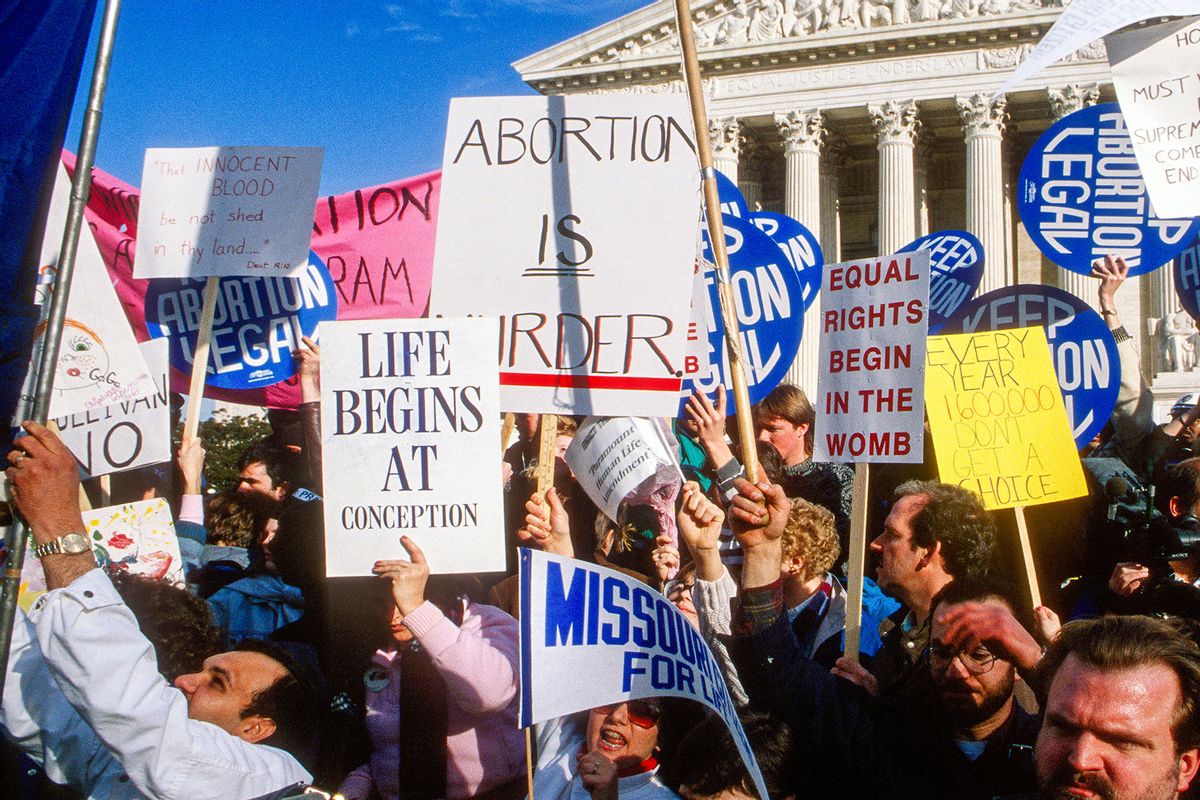Leaked majority opinion says U.S. Supreme Court is about to overturn Roe v. Wade

The Supreme Court is set to overturn Roe v. Wade, according to a leaked draft of a majority opinion written by Justice Samuel Alito that Politico published on Monday night.
”We hold that Roe and Casey must be overruled,” Alito wrote in the document, labeled as the “Opinion of the Court.” “It is time to heed the Constitution and return the issue of abortion to the people’s elected representatives.”
According to Politico, the ruling was drafted in February and would immediately end nearly 50 years of guaranteed abortion rights following the Roe v. Wade decision in 1973, which ruled that the U.S. Constitution protected a pregnant woman’s right to have an abortion. If the Supreme Court overturns Roe v. Wade as expected, it would be up to each individual state to decide whether to ban or allow abortions.
RELATED: After Roe v. Wade: Now the fight for reproductive justice moves to the states
As Politico reports, it is unclear whether or not there have been any changes to the draft ruling since it was written, and that it received the draft from “a person familiar with the court’s proceedings in the Mississippi case along with other details supporting the authenticity of the document.” The Supreme Court is currently deciding whether or not to uphold a Mississippi state law that prohibits abortion after 15 weeks of pregnancy; the opinion in this case — which could overturn Roe v. Wade — wasn’t expected to be published until late June.
As noted in the Politico report, obtaining a draft while a case is still pending is unprecedented. However, the draft offers a unique view into the justices’ deliberations.
“Roe was egregiously wrong from the start,” Alito wrote in the draft. “Its reasoning was exceptionally weak, and the decision has had damaging consequences. And far from bringing about a national settlement of the abortion issue, Roe and Casey have enflamed debate and deepened division.”
If the ruling comes to pass and Roe v. Wade is overturned, the map for reproductive healthcare in the United States will be completely redrawn. Guttmacher Institute, a non-profit pro-choice research organization, predicts as many as 26 states will severely restrict abortion access or ban it entirely if Roe v. Wade is overturned. The states likely to ban abortions entirely and immediately without federal protections would include Florida, Indiana, Montana and Nebraska. Women in these states seeking to terminate pregnancies would be forced to give birth against their will, or to travel out of state for abortion options if they have the resources.
As reported by the New York Times, research suggests that nearly half of women who won’t have access to a legal abortion would be forced to have children. An America post-Roe might appear similar to what America looked like before Roe v. Wade, when a patchwork of different laws in different states meant abortion access varied depending on one’s geographic location. The Times cited a 2019 study from a Middlebury College economics professor that predicted that an overturning of Roe v. Wade would result in a 32.8% decrease in the number of abortions performed in the United States.
“In the year following a reversal, increases in travel distances are predicted to prevent 93,546 to143,561 women from accessing abortion care,” the paper noted.
“We are going to see some women will still do dangerous things like having the boyfriend hit them in the belly or throwing themselves down stairs or taking dangerous herbs,” Carole Joffe, a professor at the University of California-San Francisco’s Bixby Center for Global Reproductive Health, told the New York Times.
Pro-choice and women’s health organizations across the country are swiftly responding to the report. Mini Timmaraju, president of the non-profit organization NARAL Pro-Choice America, called the report the most “ominous and alarming sign yet” that Roe v. Wade is poised to be overturned by the U.S. Supreme Court.
“While this is a draft opinion and abortion is still legal, we need to brace for a future where more and more people are punished and criminalized for seeking and providing abortion care,” Timmaraju said in an emailed statement to press. “Now more than ever, we must support those working to provide abortion care and elect champions who will relentlessly fight for reproductive freedom and take bold action to safeguard abortion rights.”
Editor’s Note: This story was updated at 7:52PM PT with additional predictions and reactions from experts and advocacy groups.
This is a developing story. Check back in to Salon for additional updates.
Read more on reproductive rights in the United States:

